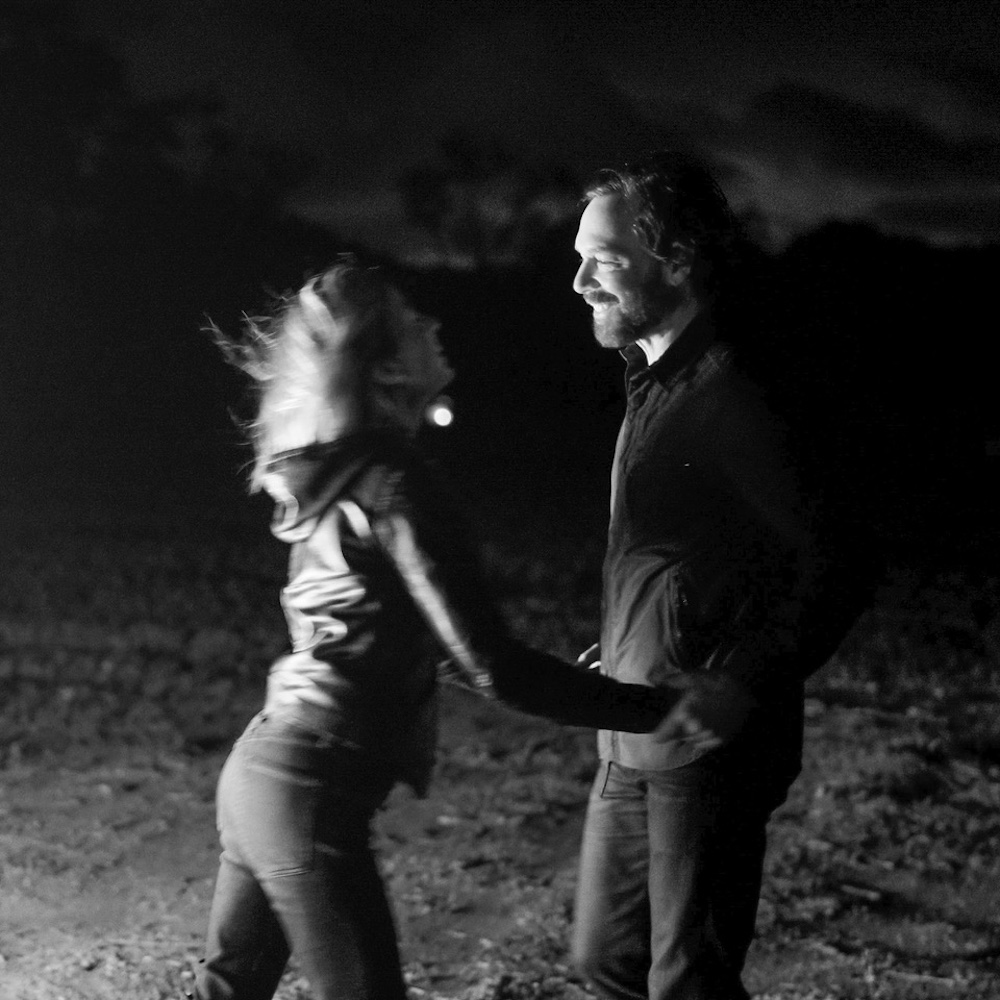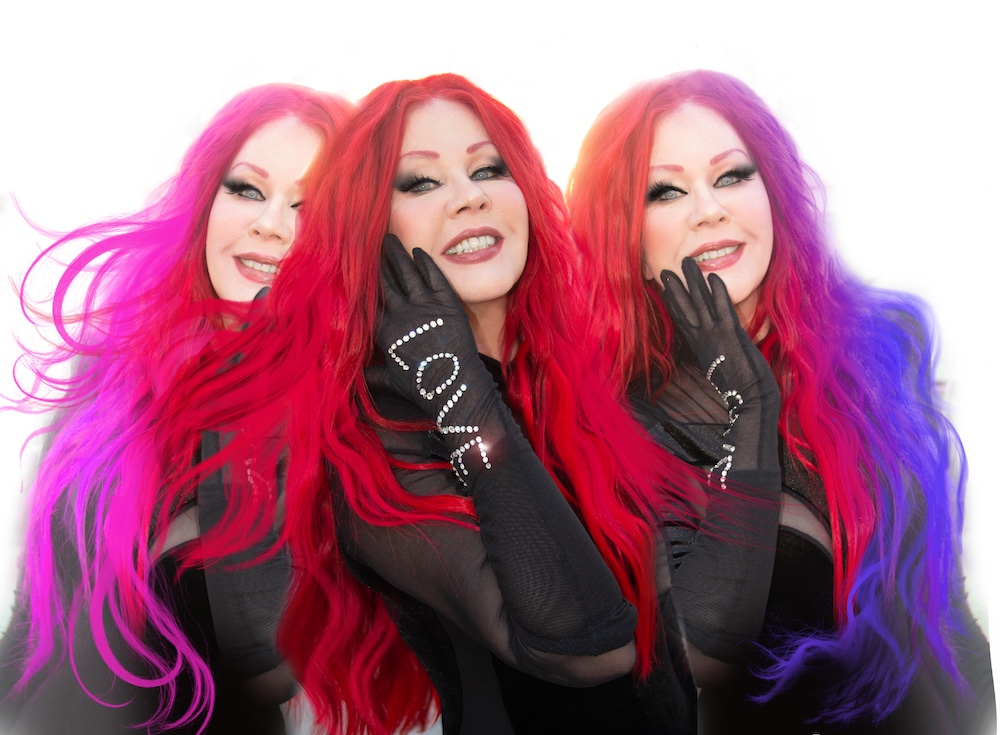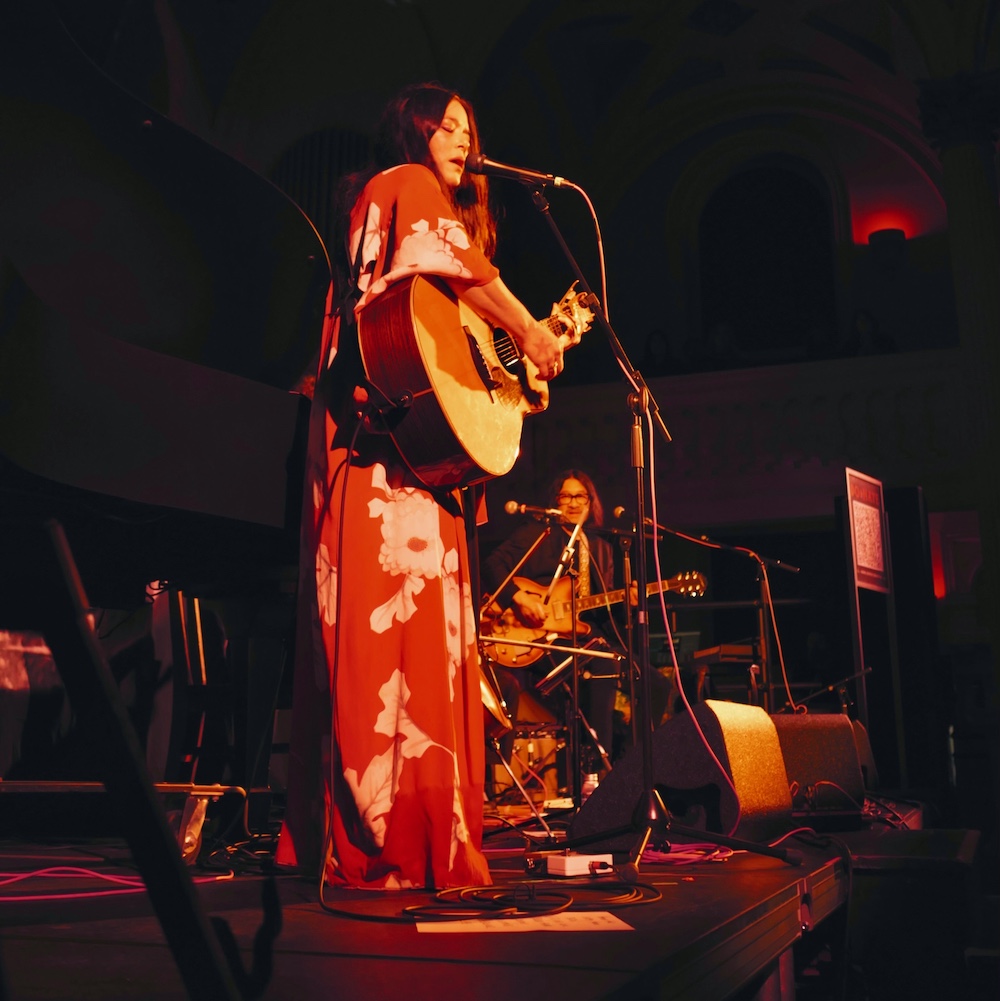
The Soulful Return of Rachael Yamagata
With her unmistakable voice as a touchstone, Hudson Valley-based singer-songwriter Rachael Yamagata has been a favorite of critics, discerning music lovers, and the supervisors of the soundtracks of some of your favorite films and television shows since her acclaimed 2004 debut album, Happenstance.
On October 3, Yamagata returned with Starlit Alchemy, her fifth studio album and first since 2016’s Tightrope Walker. The 11-track collection is a cinematic, soul-stirring journey through grief, surrender, resilience, and release – a score for Rachael’s recent experiences of emotional excavation and rebirth. Sequenced intentionally and layered with dreamlike, ambient textures, full-band flourishes, and live-in-the-room warmth, Starlit Alchemy is less a diary and more a transmission: Something intuitive, elemental, and built to resonate. Its just-released single, “Birds,” is already generating raves in media like Variety and Flood Magazine and amongst her fans domestically and around the world.
Yamagata is reemerging with a new attitude and modus operandi that is growing in popularity, especially among seasoned recording artists. She has been independently releasing and self-managing for the past 13 years, pursuing her unquenchable passion for creativity and music in a D.I.Y. way – without the constraints of record labels. This month, she launched a cross-country tour including stops in Los Angeles, Boston, Chicago, Portland, and Kingston on October 11 for a stirring hometown performance that was one of the true highlights of this year’s O+ Festival.
Read on to hear about her life in music and love of the Hudson Valley.
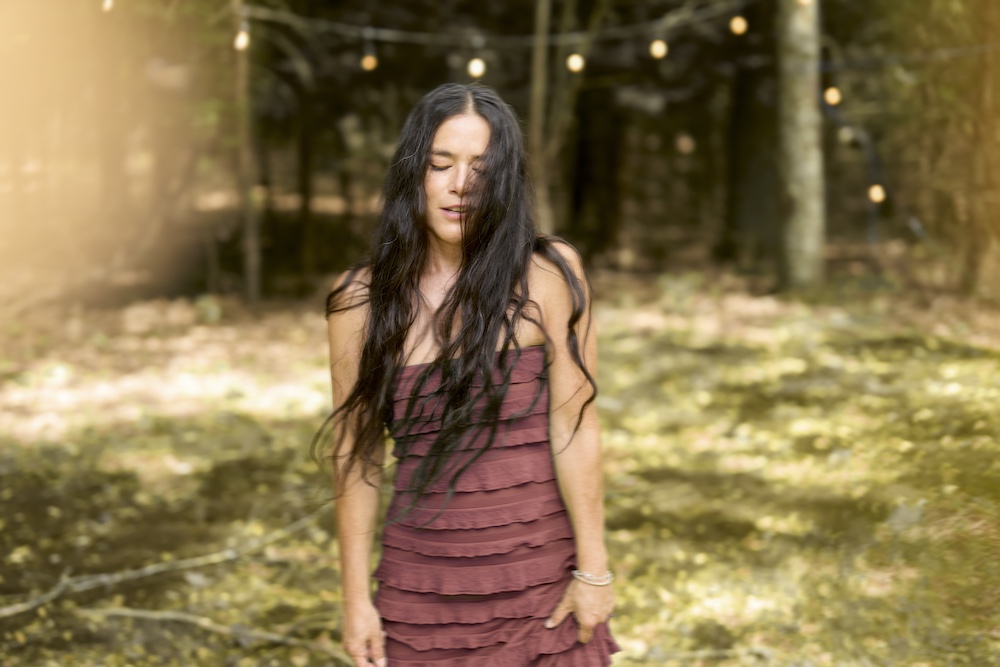
INSIDE+OUT: When did you first become interested in music? And who were some of the musicians and albums that most influenced you in your early years?
Rachael Yamagata: I’ve always loved the piano and started getting lessons at twelve. I stopped taking them after a year, but I continued playing for fun. Initially, I pursued acting as a career in college. But one day, I got kicked out of my acting class, and then I got into another one for opera students. Somewhere in all of that, I saw the band Bumpus playing a pool hall in Chicago, and my focus shifted to live music.
It hadn’t occurred to me that peers of my age were out there playing music, and I fell in love with their energy on stage and the whole experience. It wasn’t until college that I really started writing my own songs. I’ve always been drawn to singer-songwriters, particularly of the ’70s, and somewhat grew up on what my parents were listening to: James Taylor, Carole King, Stevie Wonder, Fleetwood Mac, Ricki Lee Jones, Bonnie Raitt, Joni Mitchell, Linda Ronstadt, The Beatles, Aretha Franklin, and Barbra Streisand, even. Bumpus introduced me to Sly Stone, Prince, Nina Simone, and Tom Waits. I’ve been discovering so much music way too late in the game.
When did you decide to move to the Hudson Valley? What is it that you most love about the area and its community of like-minded musicians?
Rachael Yamagata: My mother’s side of the family has been here for over 100 years. They are the MacDaniels, just like MacDaniel Road here near Overlook Mountain. Holidays were always spent up here, and some family members continue to live here. That includes those I found out about later, like Cindy Cashdollar. We call each other “barnyard cuz.” I lived above mom’s garage on and off during my touring years, from 2006 to 2011, and I got my own house here in 2013.
“My mother’s side of the family has been here for over 100 years. They are the MacDaniels, just like MacDaniel Road here near Overlook Mountain.”
I didn’t picture myself living in the Hudson Valley permanently, but it’s become the perfect place to come back to, and I’m so grateful to have roots here. There is a beautiful sense of community among artists who come to find their place of refuge here, away from the road and frenetic touring. It’s a rejuvenation haven, and I think many of us are hermits looking to create art and hide away, yet the community itself is a safe space to come out of our shells. The scope of artists who have now found a place here and come out and play locally is really inspiring. The challenge lies in the influx of new residents and its impact on resources and housing prices, as well as the question of whether artists can remain living here in the context of growth realities. I love the idea of our art community thriving, but I’ve also seen many of my peers needing to move because we’re now in a popular hotspot.
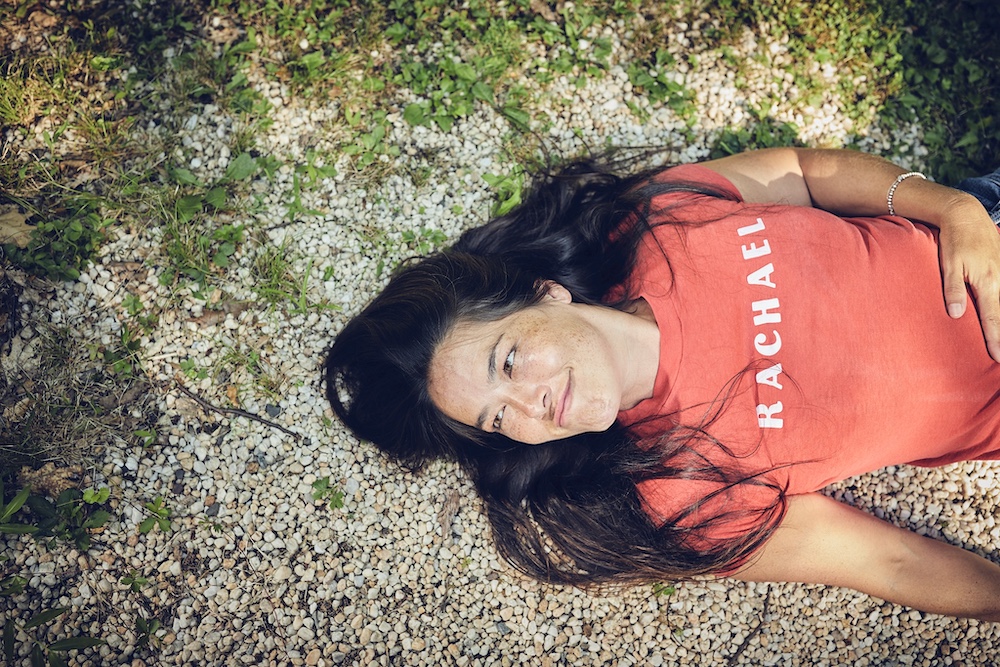
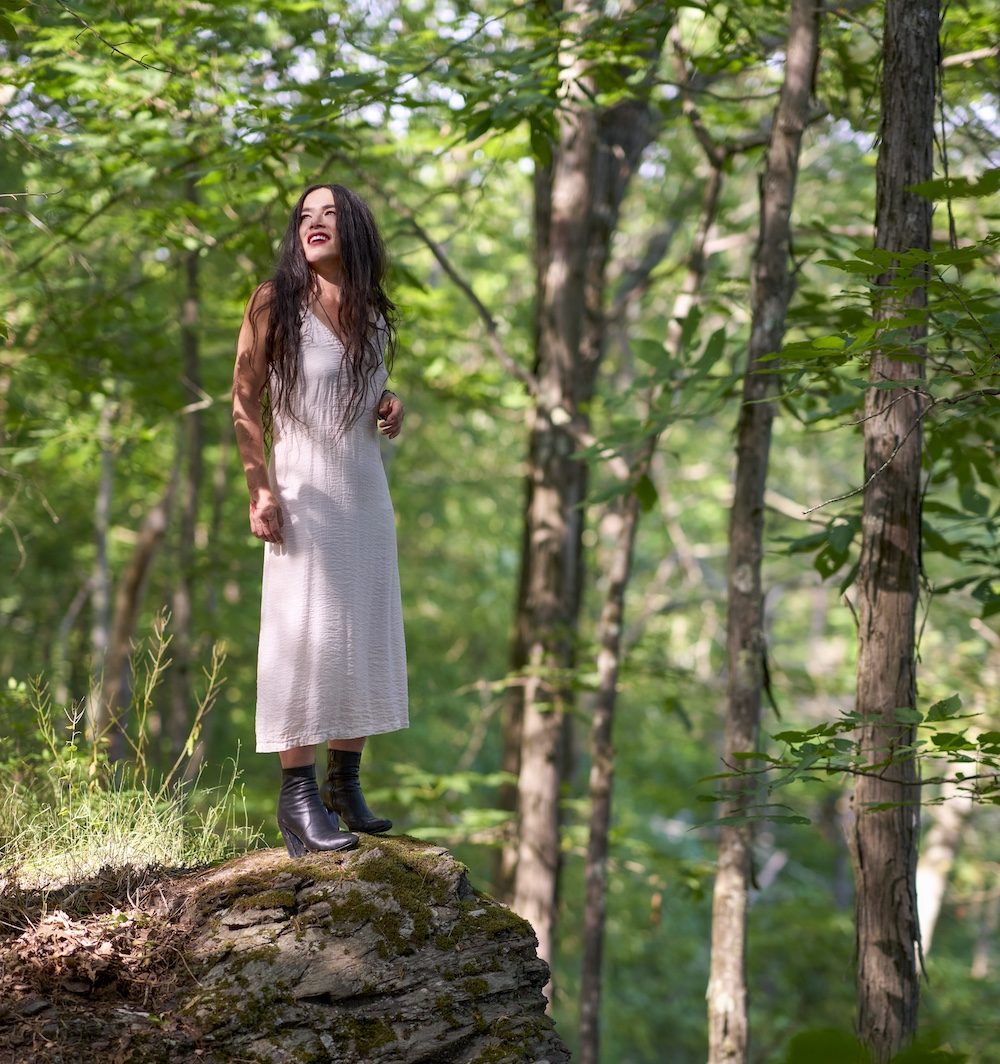
You launched your solo career in the early aughts, going the traditional, big-label route. What were some of the positives and drawbacks of that experience?
Rachael Yamagata: Back then, the big label was the big win. I was incredibly fortunate to have the initial attention and get on the map – the exposure and marketing, all of it. It was like winning the lottery, and it launched my life in music as a profession. The advances from record labels in those early days financed my music equipment, my tours, and my ability to have life covered so I could tour and make records. The system of the big machine got me started on my path to worldwide exposure. The positive aspect comes down to having been able to do music as a full-time gig and having enough exposure so that I could create a foundation to continue.
What were the drawbacks of that time? All the common things, I suppose – rollercoaster life realities, industry implosion, successes and failures, and the pressures. None of it was easy, and yet I’m grateful for all of it.
You certainly hit it out of the park with your first full-length album, Happenstance, and the songs “Be Be Your Love” and “Worn Me Down.” What was that experience like, creating your debut and promoting it in those days when MTV still ruled the music biz?
Rachael Yamagata: I didn’t know what I didn’t know. I knew I loved writing and playing shows, and I did that for seven years in Chicago without ever thinking it would be a career. I was blown away the first time a label paid for a plane ticket to have me come out and do my thing for them. That was the first moment I thought, “Huh, maybe this could be a career!” I loved making that first record, and I’ve loved making records ever since. The hard part—from challenging to soul-crushing—has been the business side. Promotion back then was fueled by a big machine, and I wasn’t part of it. Promotion now falls so much on the artist, and it’s a whole new ball game. I feel lucky to have started then, even with all the upheaval.
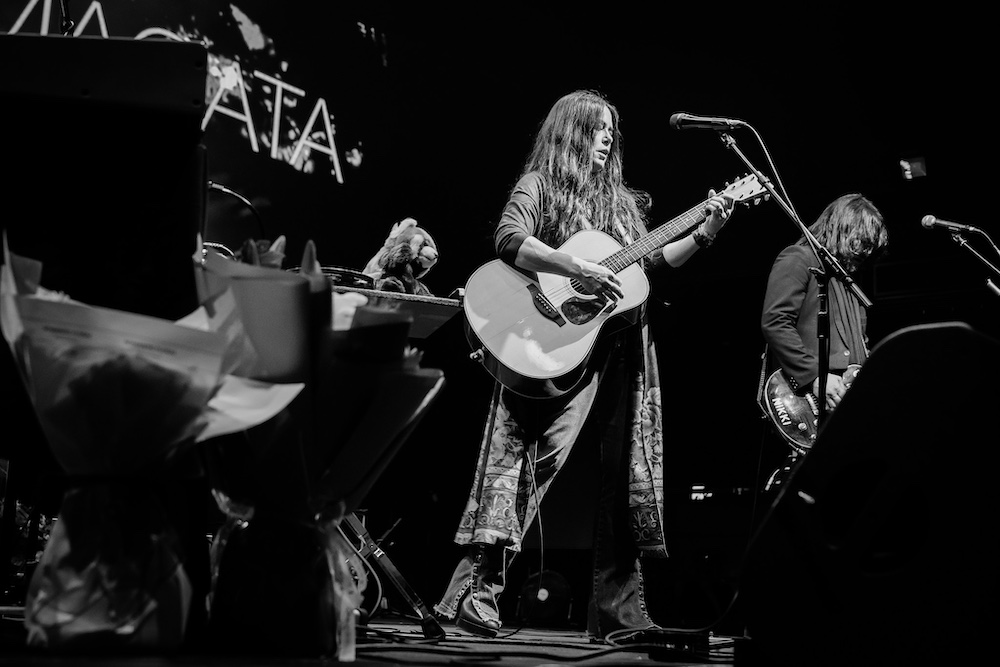
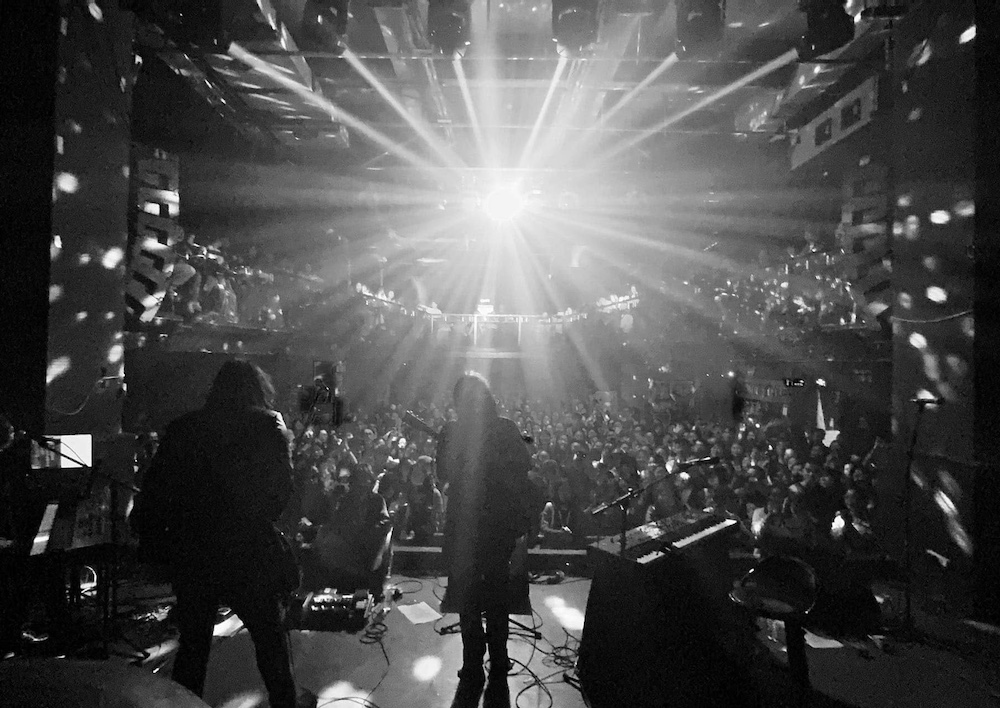
Some of the most popular songs among your 250,000 monthly listeners on Spotify are tunes that have been featured in film and television shows like Grey’s Anatomy and Ted Lasso. How has this revenue stream become more critical as physical sales of vinyl, CDs, and even downloads have declined?
Rachael Yamagata: This answer deserves eight pages of thoughts, honestly. Think of a good sync as one to two months of salary in a well-paying standard job. The rest of the year, you are getting side hustles of every sort to fund tours, records, etc. We are in a system where music is essentially free, and it’s up to the artist, manager, record makers, etc., to figure out how to survive it. It feels harsh because the public would see the artist making music, gaining followers and streams, and playing shows, among other activities. I bought a ticket and a t-shirt, and they seem popular; all must be functioning well.
“We are in a system where music is essentially free, and it’s up to the artist, manager, record makers, etc., to figure out how to survive it””
The reality is that the artist works to fund the music and tours and hopes to break even (at my current level, that is). Pick a profession and ask someone in it: Would you provide your service for free? And not only that, could you fund everything that goes along with your service and offer it for free? I can only speak for myself at this level, and I really hate walking this edge of sounding at all disgruntled. I’ll always make music and art wholeheartedly, regardless of the level, but the business side isn’t sustainable, and this particular loop in the music business isn’t sustainable.
For the past 13 years, you have been self-managed, just like many other brilliant artists! Do you think this is a route that most artists, whether emerging or established, should consider? And what are the upsides and downsides to going independent?
Rachael Yamagata: At some point, every artist starts asking these questions. Why am I working nonstop, and what tangible results am I left with – money, time, health, etc? They might start questioning a system that takes 40 to 45% off the gross before expenses and begin connecting the dots. I went the self-management route, not because I didn’t want a team, but because I was losing $53,000 a year and working nonstop. I couldn’t afford the team. I didn’t have that to lose year after year. That’s partially where the early-day record company advances went. I wanted to keep making records and playing shows, so I learned every bit of the business that I could that might allow me to get out of the “percentage of gross” system and still do it.
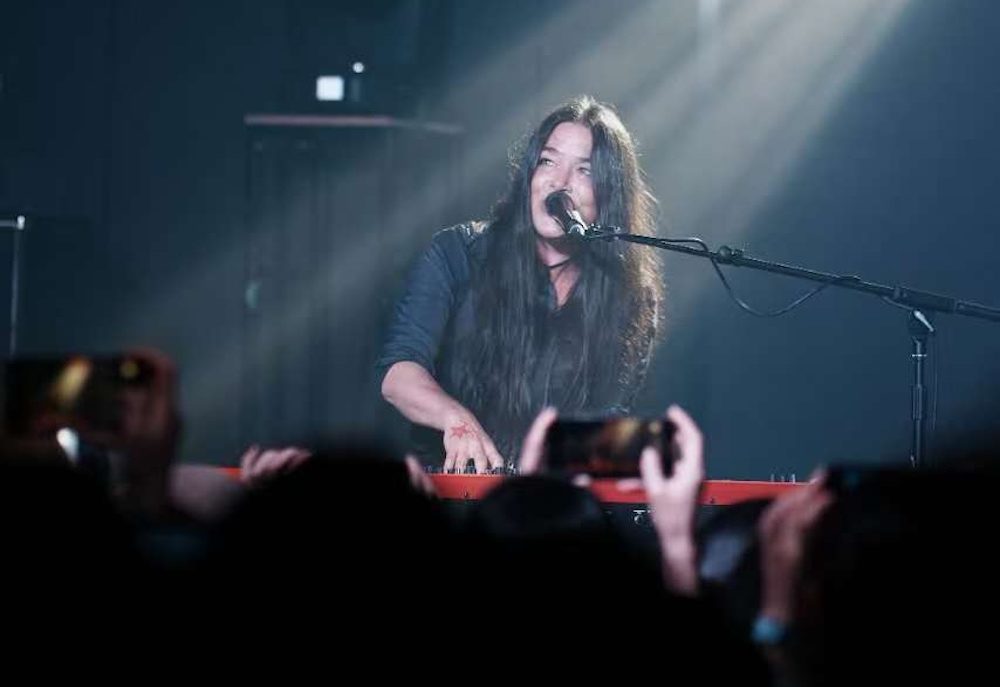
Should others do it this way?
Rachael Yamagata: I think you need an excellent biz brain on the team, whether it’s the artist or a kick ass manager. Either way, it’s essential to start thinking like an entrepreneur and have regular check-ins and realistic assessments with your team – what worked and what didn’t? What routes can we try that we haven’t yet? And what’s the end game, more free streams?
The bummer is, the more business I do, the less time I have to do the music. I have a small team that is doing everything they can to adjust to their own realities in a changing industry. They work incredibly hard and have all the right intentions. Still, they are backed into a corner, needing a higher quantity of artists to sustain their own business success, unless they get that one artist who truly takes everything to the next level.
Labels are focusing on algorithms and numbers, while deals are going to artists who no longer need the labels. They’ve made their own fanbase on social media. I think some of these folks are probably incredible finds, and the internet has become their lottery win. I think some of these people have never played a show or written a song, yet they still have a lot of followers, which lands them a big label deal. I absolutely understand the argument of “an artist shouldn’t manage themselves, they should just focus on the art.” I also understand the challenges faced by managers, producers, and independent labels, as well as the realities of an artist’s daily life. It’s not a simple answer, unfortunately.
“In my soul, the creation of songs and the connection to another soul out there is still the whole point of why I do this.”
But I don’t want any artist reading this to feel disheartened. There are a million ways to thrive, but it’s multifaceted and heavily reliant on social media until you reach a level where tours and opportunities provide a sustainable return. When they talk of how the mid-level musician is being wiped out, I understand this. In my soul, the creation of songs and the connection to another soul out there is still the whole point of why I do this. The self-management aspect is my attempt to find a way for others to hear my songs.
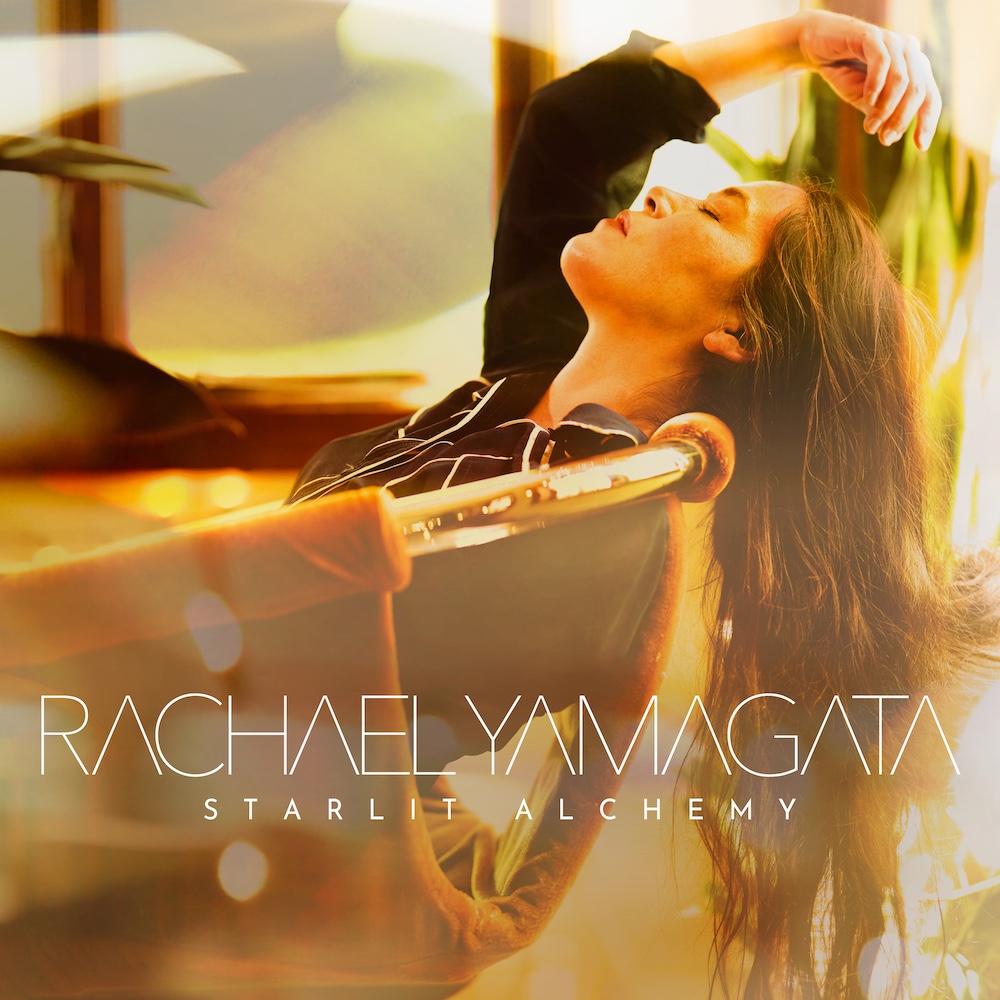
Your new album, Starlit Alchemy, is a departure from some of your past work. You have called it “a deep dive record… a soul-stirring journey of grief, surrender, resilience and rebirth.” What were the life events that shaped this record? And what role did the COVID-19 shutdown play in it?
Rachael Yamagata: I had many of the songs written before 2020, but the themes actually became relevant for that time, and new songs emerged out of that experience. Personal loss of people passing, collective trauma, all of it colored the record that is Starlit Alchemy. The stop/start rounds of being ready to make the record in 2020, and then not really recording until 2023. Rounds of touring and then touring again to finance the record, label changes, health issues, hearing loss, and TMJ – what I went through and what I saw the people around me go through, and then needing to process and transform it into something. That’s what this record is. Sometimes you have to climb the mountain, and this is what I saw as I did that. You keep your heart centered on the bigger perspective, appreciate each stage, and think of the air you want to breathe when you get up there. You tend to the wounds as you go, finding strength you didn’t know you had in the climb. You do the thing the best you can and trust.
The sound of this record is also an evolution towards a more cinematic and minimal approach, characterized by very little in the way of drums, a lot of piano, spacious ambience, and mournful strings. How did this approach come about? Was it influenced by some other artists you may have been listening to? Was it a product of doing most of the recording at your home studio?
Rachael Yamagata: Song by song, my intuition for each led to their sound. What’s the most effective way to tell this story? I always put too much on, but I’m a sucker for cinematic production.
As always, your vocals are truly the sonic standout and signature of your latest album, especially tunes like “Birds,” “Hurt,” “Jesse,“ and the dreamy album closer, “Reprise,“ where I hear a lot of a Joni Mitchell influence. Who are some of the singers who have most influenced your approach? And how has your well-publicized battle with TMJ and hearing loss impacted your ability to record and perform live?
Rachael Yamagata: “Birds“ was the one where I noticed the Joni for sure, and it surprised me after the fact. I don’t have too many melodic jumps like that in other songs. I just write what comes, and it feels natural as I’m writing it. The others are me just writing. I write the music, lyrics, and melody at the same time and see where it goes.
I’m not a studied musician technically, or with a considerable knowledge of music in general, so I couldn’t point to a songwriter who has directly influenced me. I don’t have the favorite albums on repeat list, and I’m not a role model of music knowledge by any means. But I love how certain songs make me feel, and I know that I wept when I heard Bonnie Raitt sing “Just Like That“ or Stevie Nicks singing “Landslide.“ When I heard Rufus Wainwright’s “Poses“ for the first time, I had to pull the car over and just listen. The Beatles and The Beach Boys made me fall in love with harmonies and the power they have to shape something. Tom Waits used percussion in ways I’d never heard, and Ricki Lee Jones had this ownership of delivery that was so uniquely hers. Bjork, Queen, Led Zeppelin, damn! I also used to lie in my dad’s backyard, journaling about love while listening to Richard Marx and Michael Bolton. I could name each instrumental track number on the Prince of Tides soundtrack. How much of those influenced me? All of them, in some ways, I’m sure.
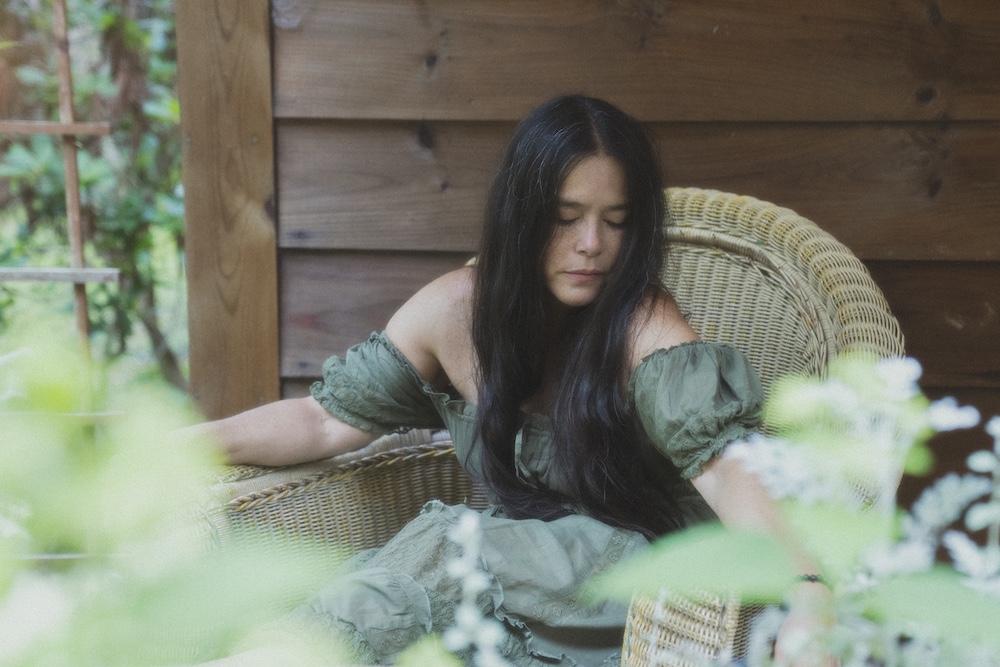
Photo by Brooklyn Zeh
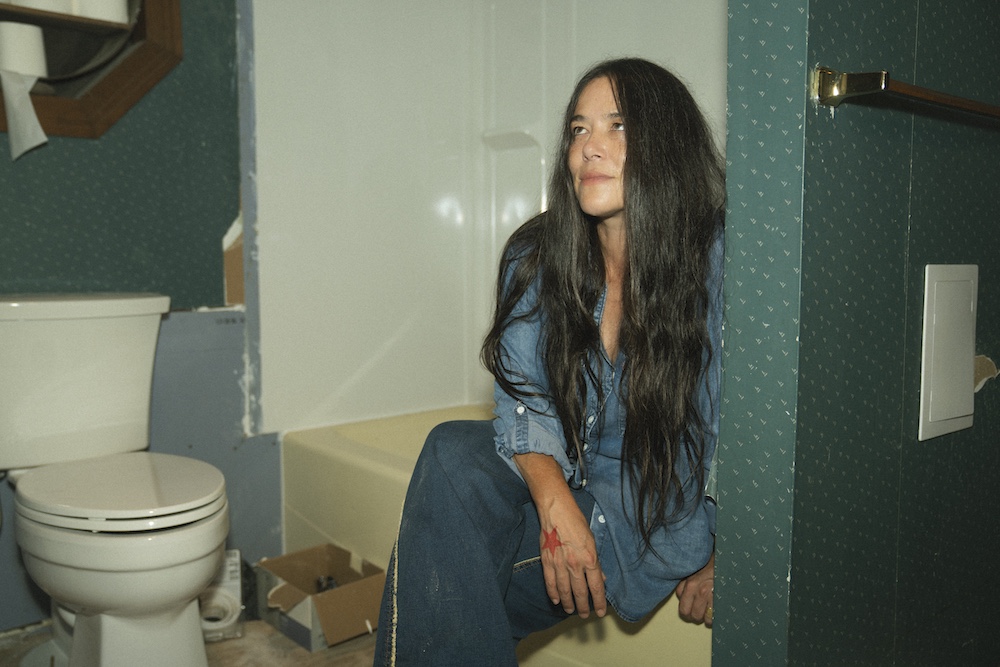
Photo by Brooklyn Zeh
Some of these songs, like the album opener, “Backwards,” “Carnival,“ and “Empty Houses,“ are about getting right with yourself and the world and, again, navigating life changes. What were the inspirations for these?
Rachael Yamagata: Life. All just life. “Empty Houses,“ in particular, was my digestion of what two different people were going through in their lives and then a zoom out on it. But it’s all just life.
“Somebody Like Me“ is a real departure from most of the material here, with a big orchestral pop sound. Have you ever considered, or have you ever performed your work, with a large orchestra?
Rachael Yamagata: That is all, Michael Chaves. He took that song, my piano and vocal demo, and built around it—his brain, not mine, so definitely credit due to him. I would love to perform with an orchestra. Dreamy.
Who are some of your favorite local musical collaborators, and where are some great places to play and see music here?
Rachael Yamagata: Zach Djanikian, The Restless Age (Brandon Morrison, Will Bryant, Lee Falco), Connor Kennedy, Manuel Quintana, and Kevin Salem have been the backbone of my creations and tours for years. Sandy Bell and Jeff Lipstein are all through this album, as producers and engineers. They not only raised the bar but kept me sane. Pete Hanlon was the sound engineer and producer on some of the songs; he was indispensable. Kevin Salem has taught me more about music and business than anyone; I would not exist without him! Cindy Cashdollar, Joan Osborne, and the slew of talents in their camp. I love playing Levon’s Barn and The Assembly. The Pines, The Falcon, Colony Woodstock, and the Bearsville Theater, too. Amy Helm, Gail Ann Dorsey, Larry and Teresa, Rhett Miller, Amber Rubarth, Mike and Ruthy, Anya Marina, Emily King, Sara Bareilles, Margaret Glaspy, Chris Maxwell, and Jeremy Bernstein. There are too many gems to list, honestly. The ones that have made my jaw drop by hearing how incredible they are: Hannah Cohen and Sam Evian are killing it, and I saw a fab Mercury Rev show recently. Simi Stone makes my heart happy. The absolute find of musicians, artists, engineers, producers, and bad asses in this area; there are too many to name honestly. You’re making me want to leave the house more now.
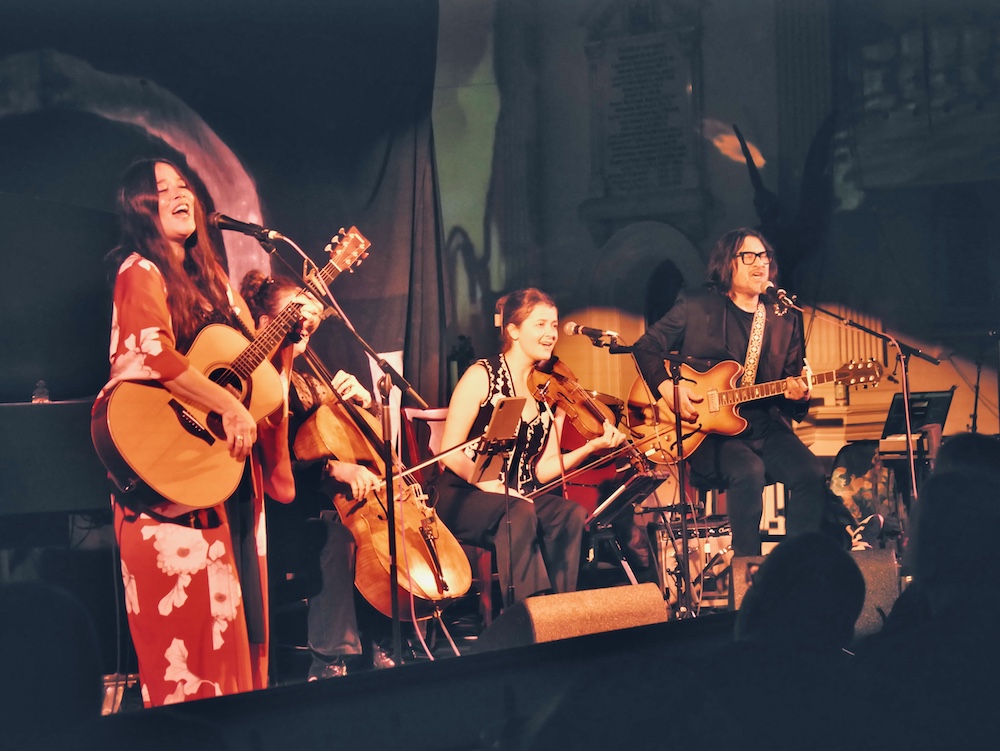
Photo by Matt Pond
What would be your dream assignment/gig?
Rachael Yamagata: Playing a haunted castle with a string quartet and lots of candlelight, tied with playing an extraterrestrial contact event in some giant field…with a string quartet.
Who or what inspires you personally?
Rachael Yamagata: My family, friends, animals, and anyone out there who is persevering.
Tell us something about yourself that people might be surprised to know.
Rachael Yamagata: I’m a new motorcycle rider, and I built a stage in my backyard out of pallets.
What is your favorite non-musical activity?
Rachael Yamagata: Interior decorating and moving all the furniture around to new places. And hoping I find more Zen.
+ + +
Photos courtesy of Rachael Yamagata + Matt Pond + Brooklyn Zeh | Featured photo by Matt Pond
Contributing writer Sal Cataldi is a musician, writer and former publicist living in Hudson Valley NY.
Follow/Connect with Rachael Yamagata via Website | Facebook | Instagram | YouTube | Spotify
+ + +
Click HERE to see all of our exclusive interviews with the amazing folks who proudly call the Hudson Valley home.
Write a Comment
You must be logged in to post a comment.



